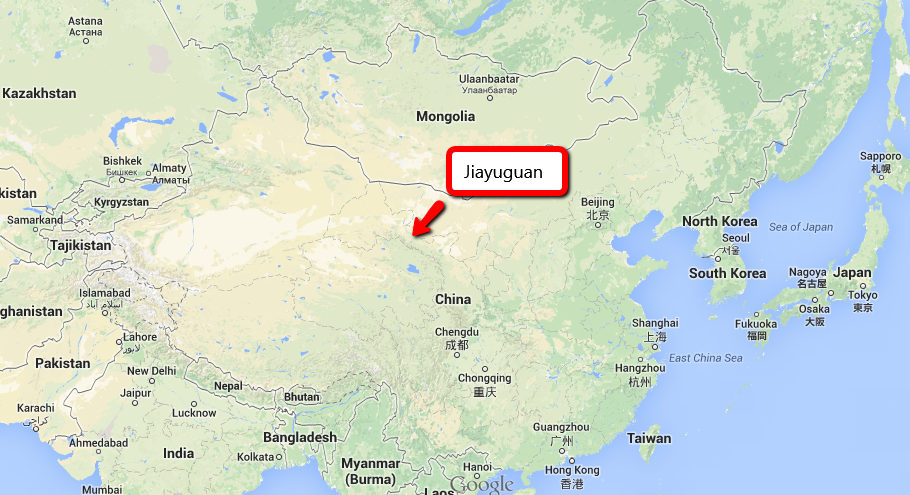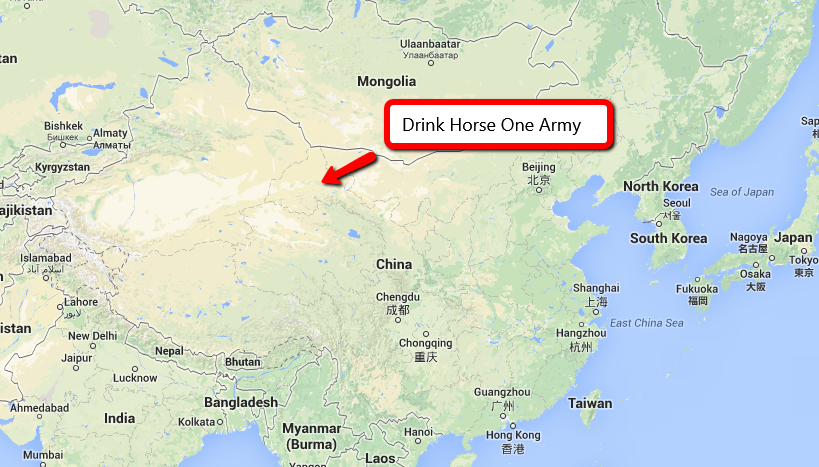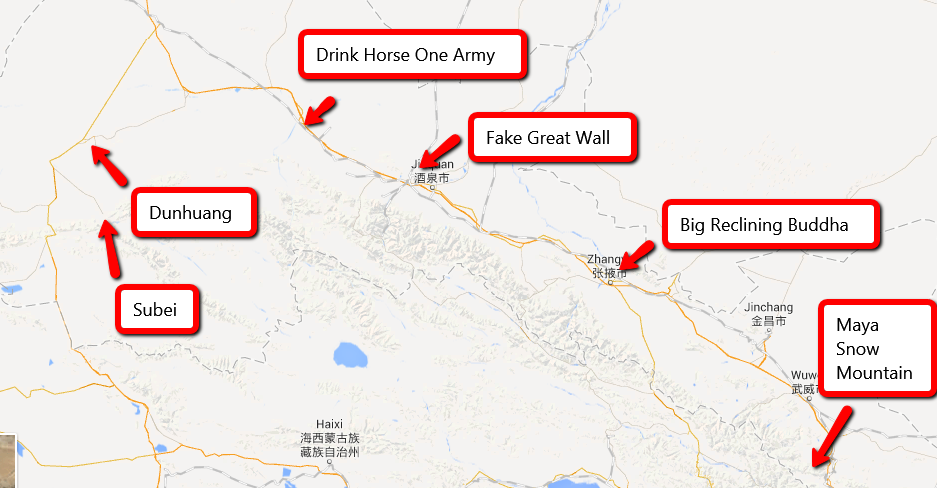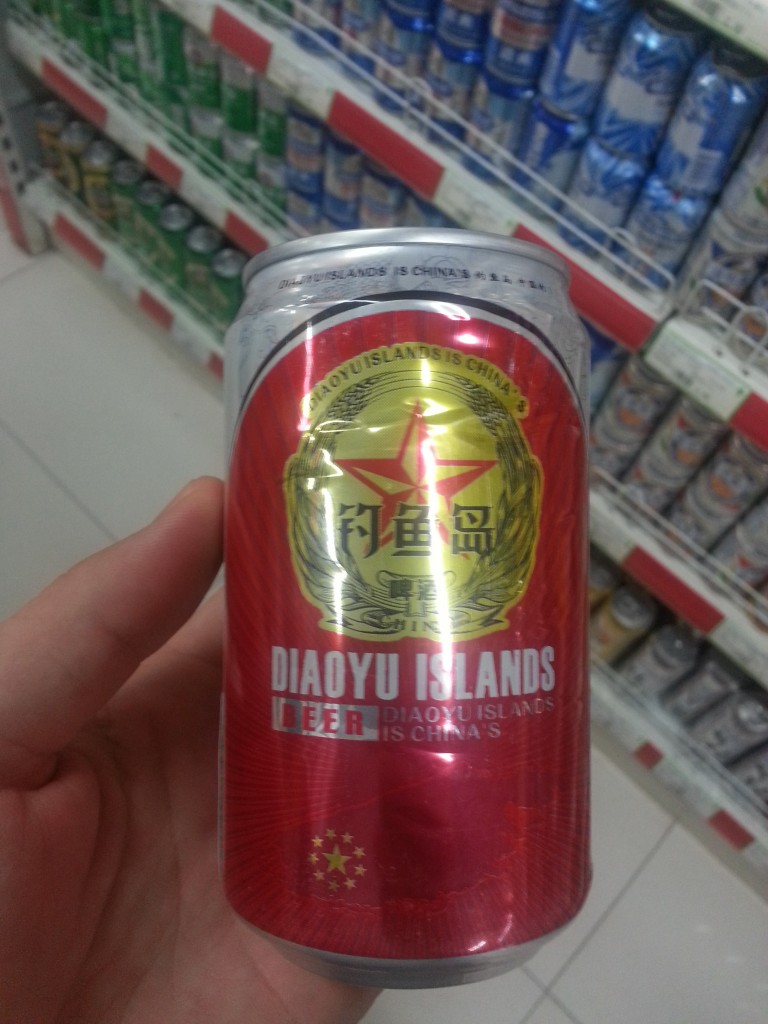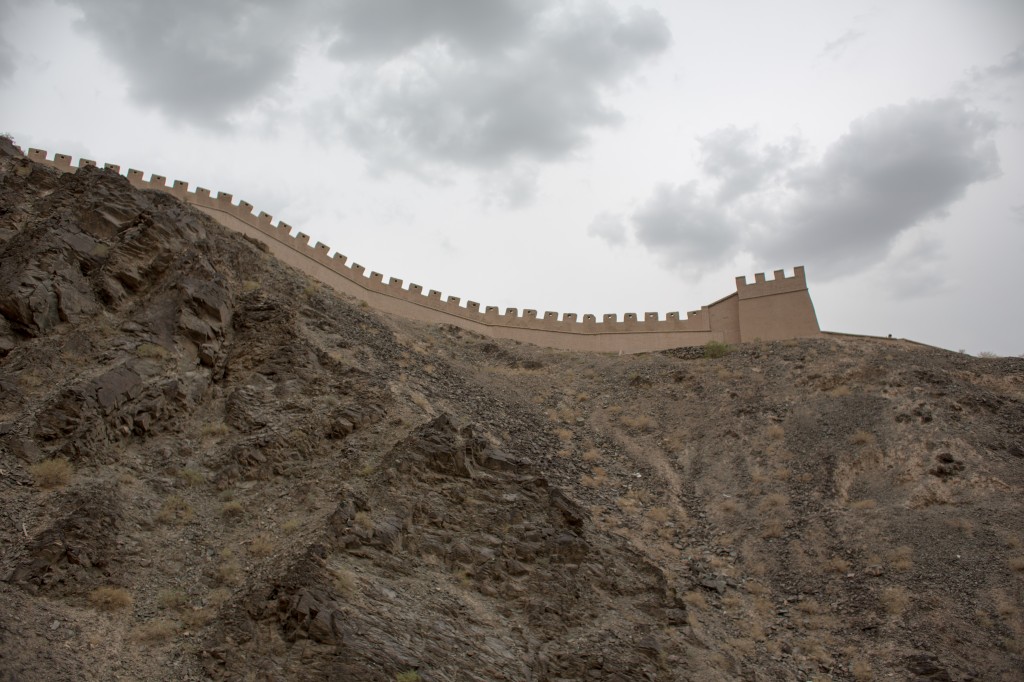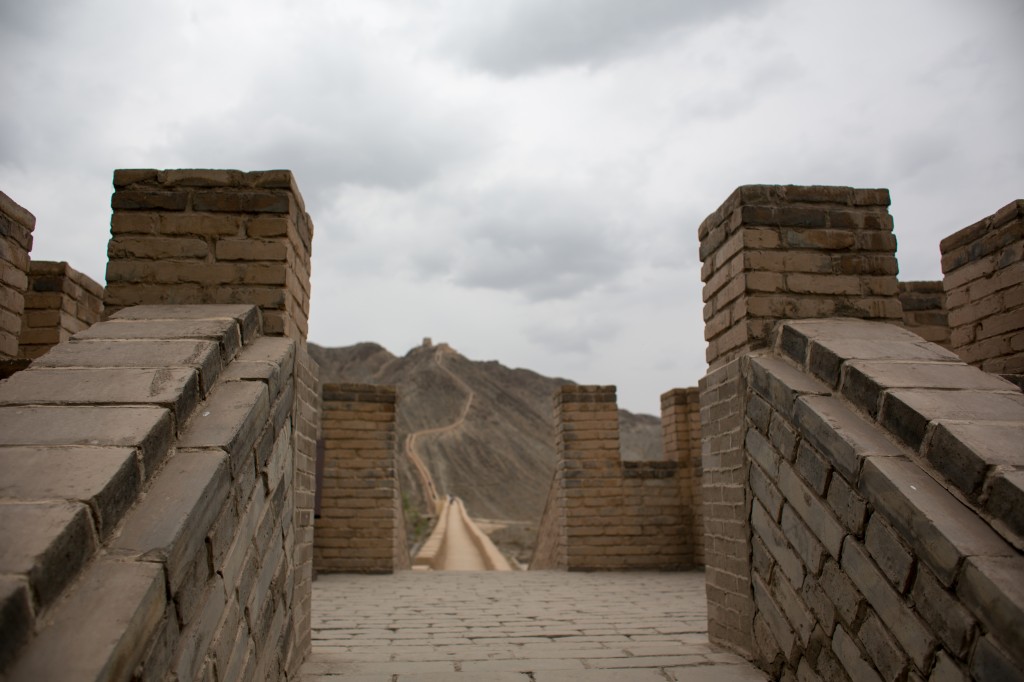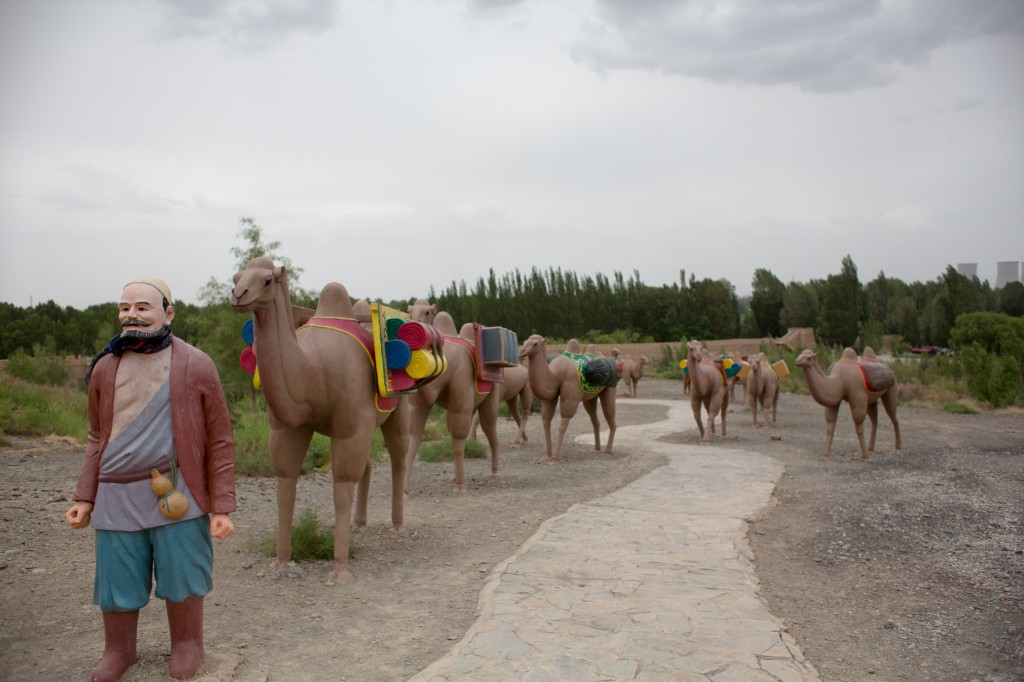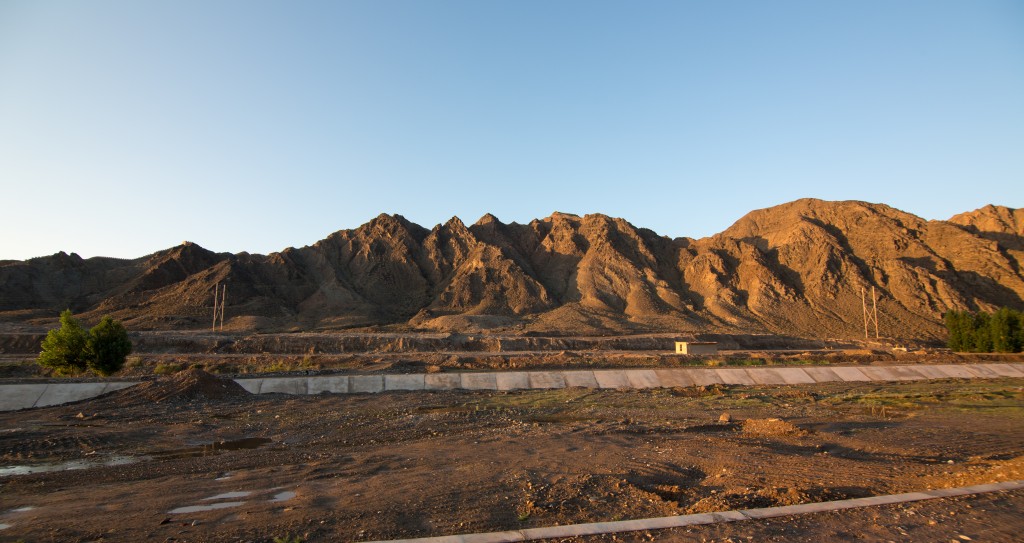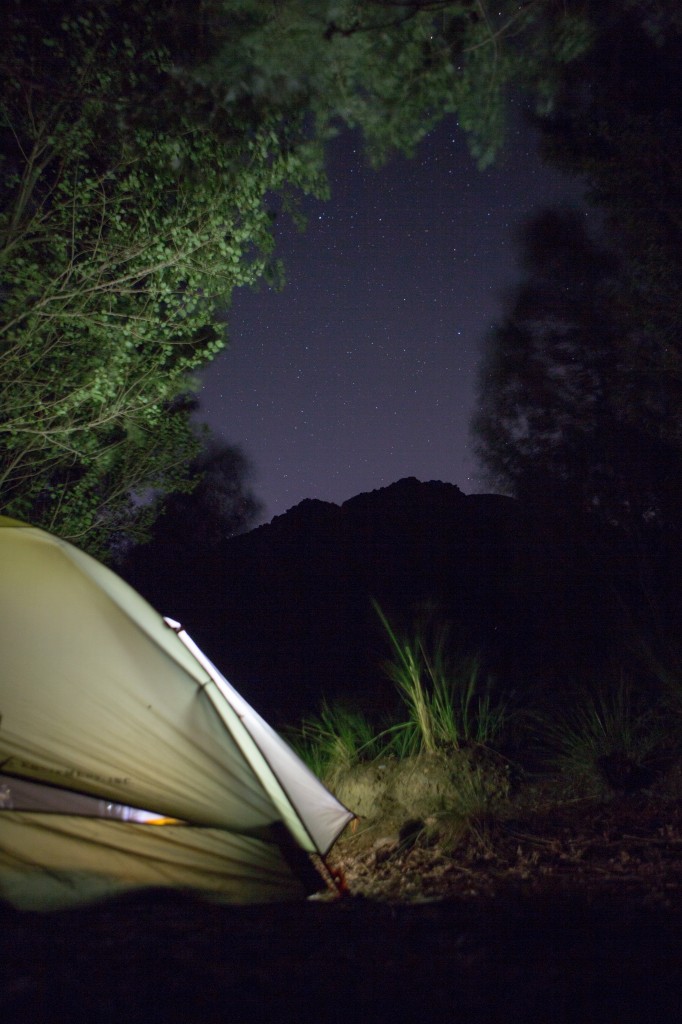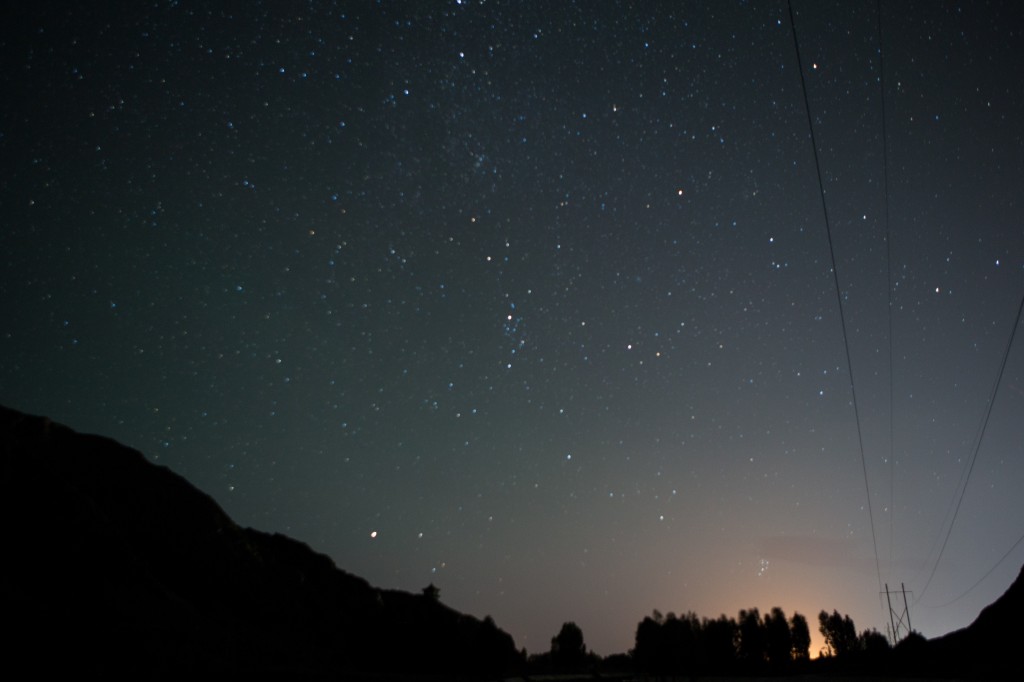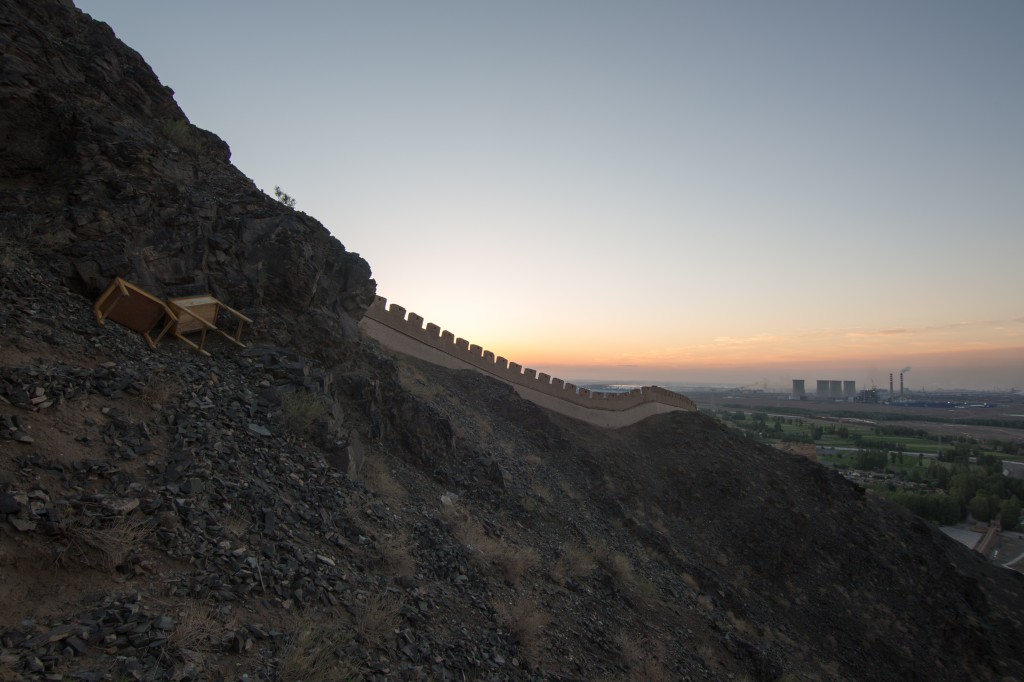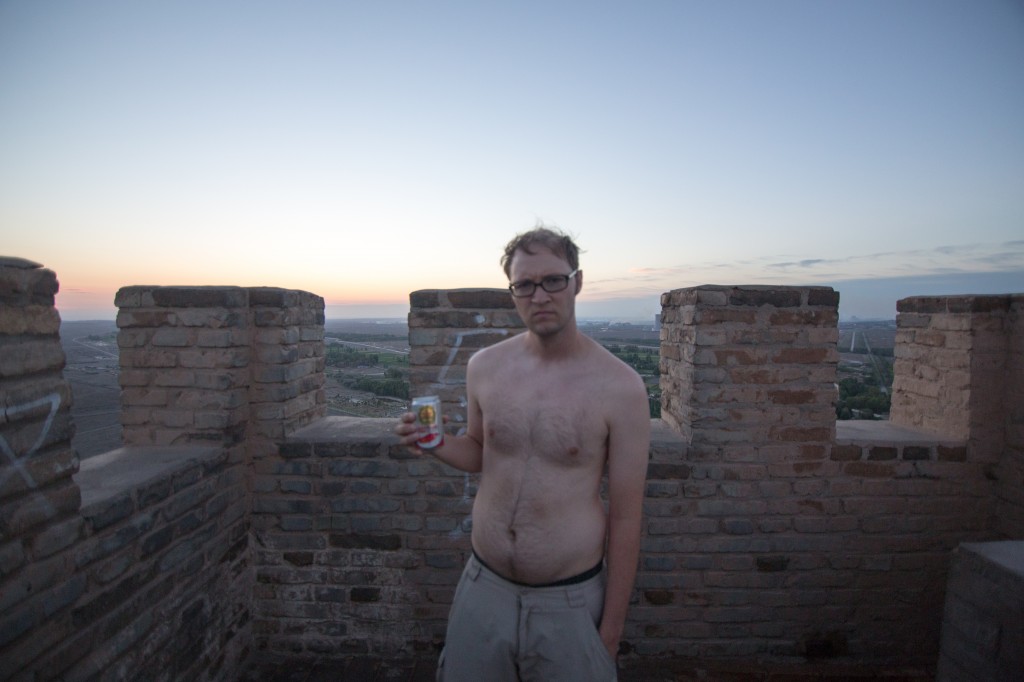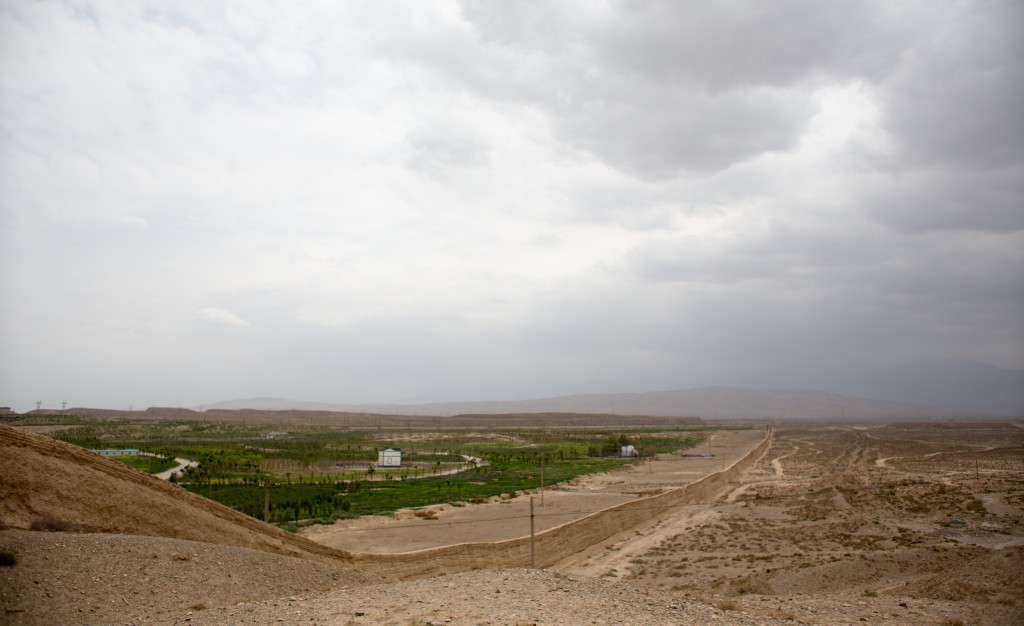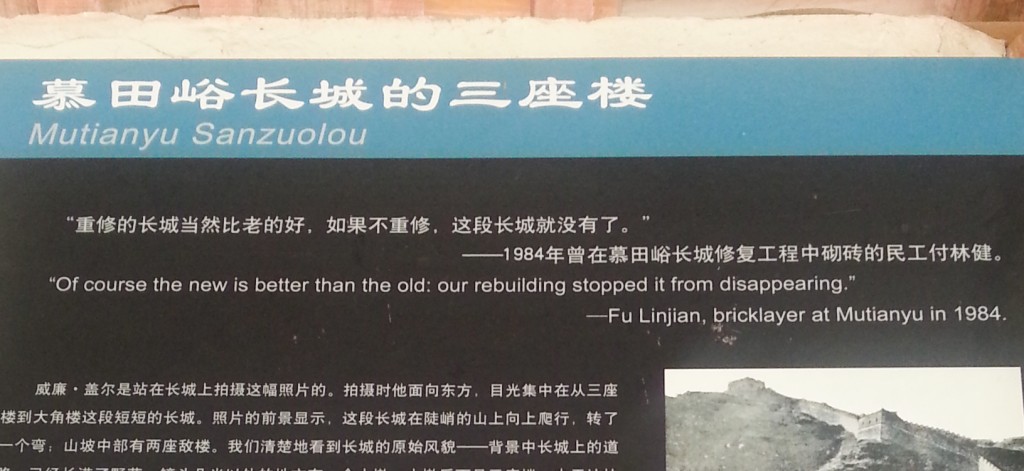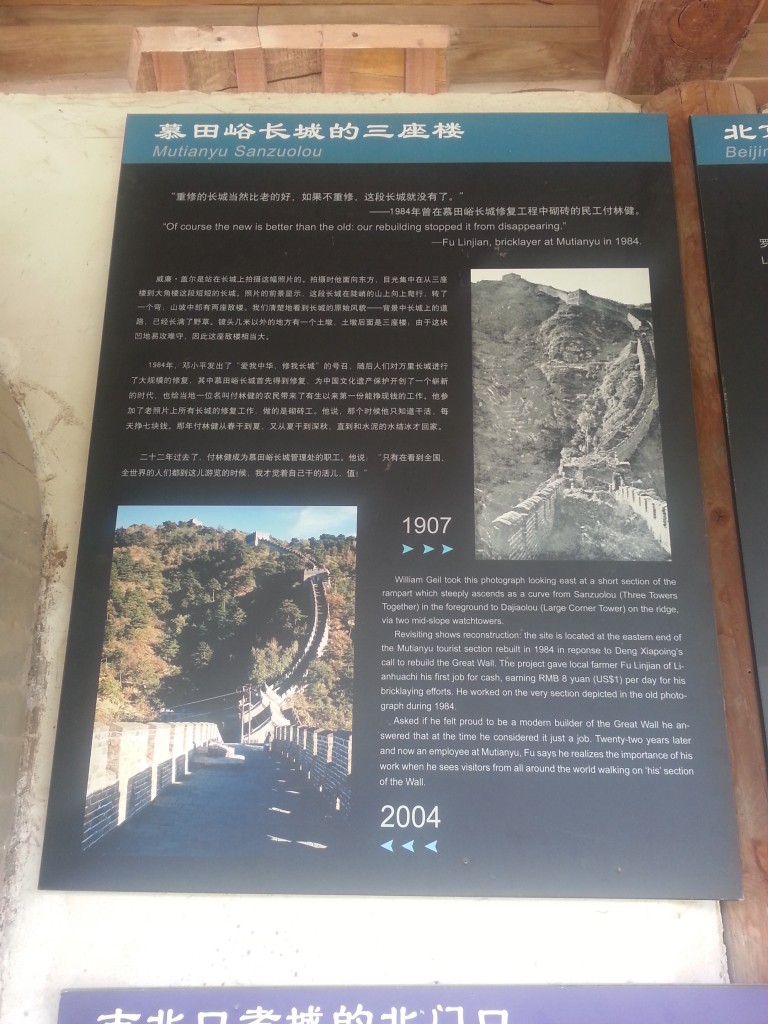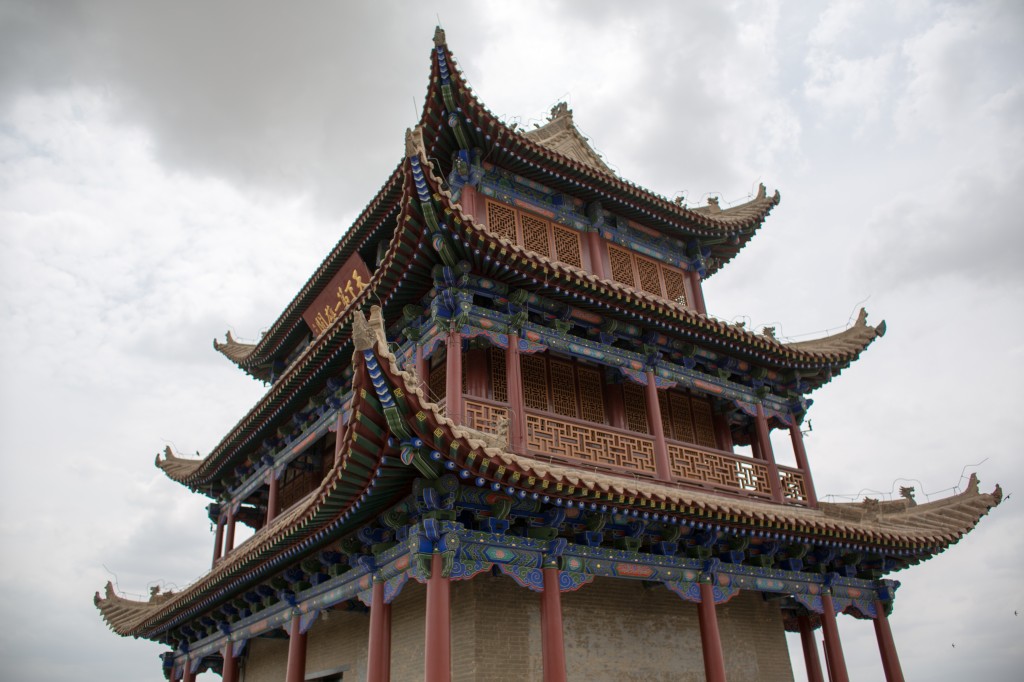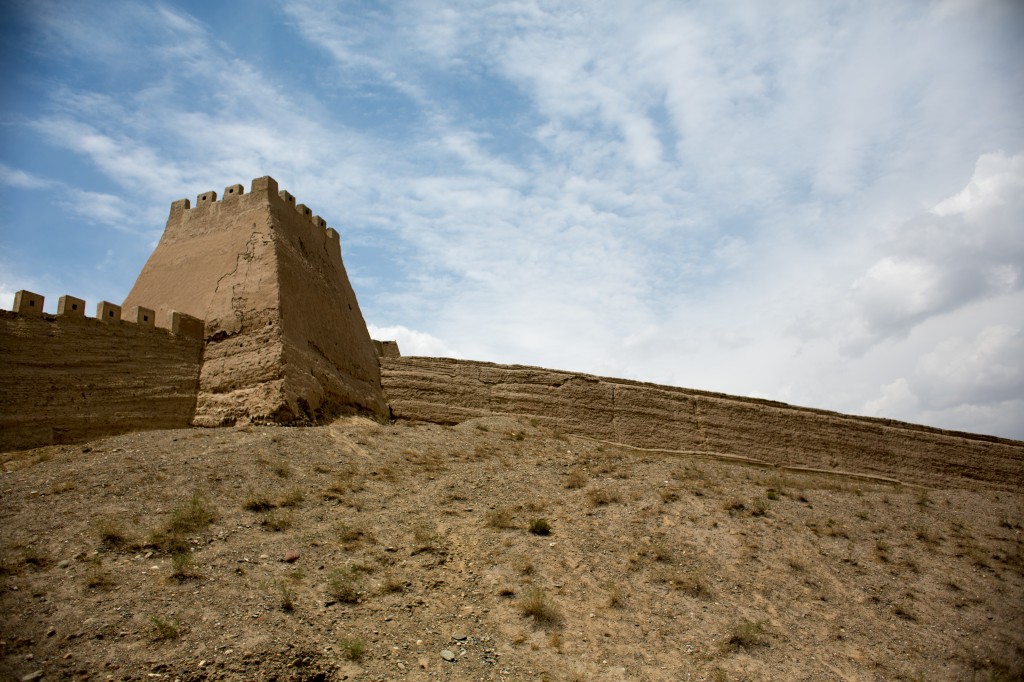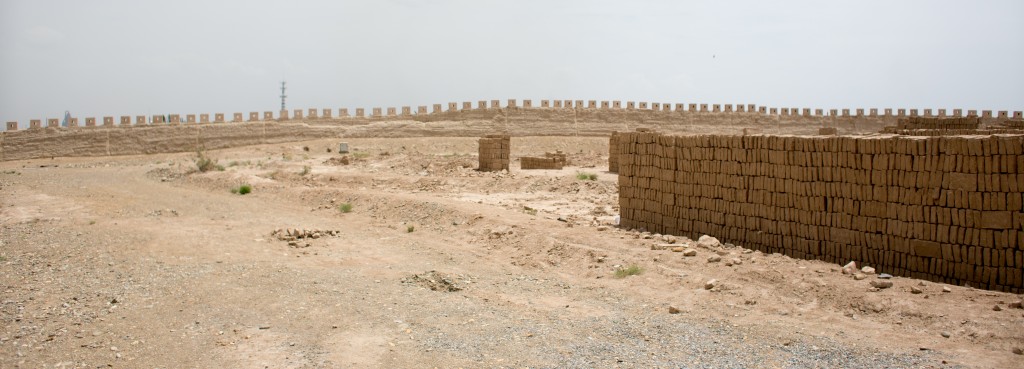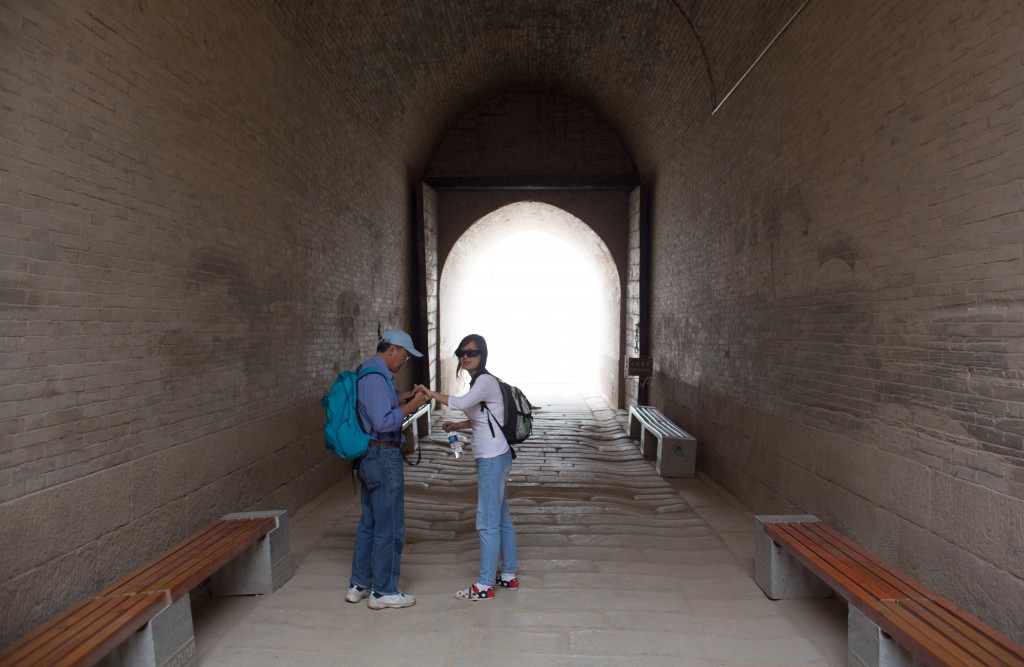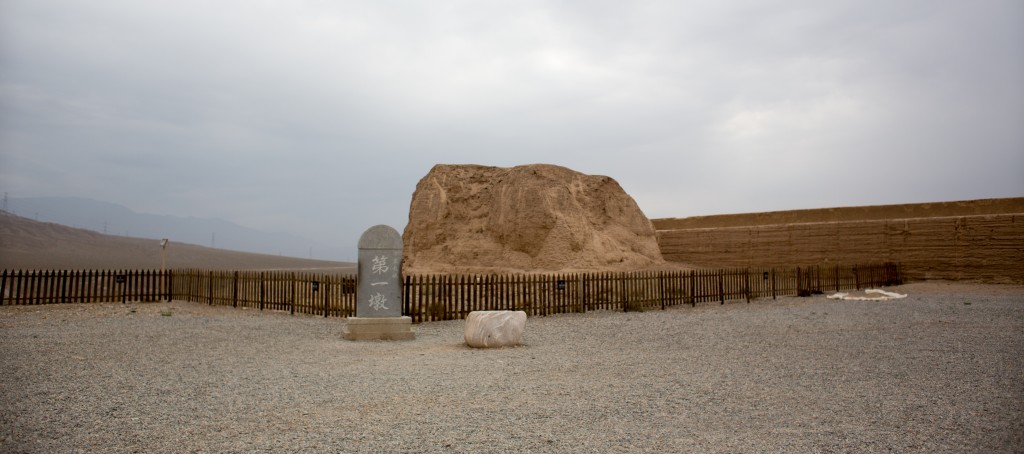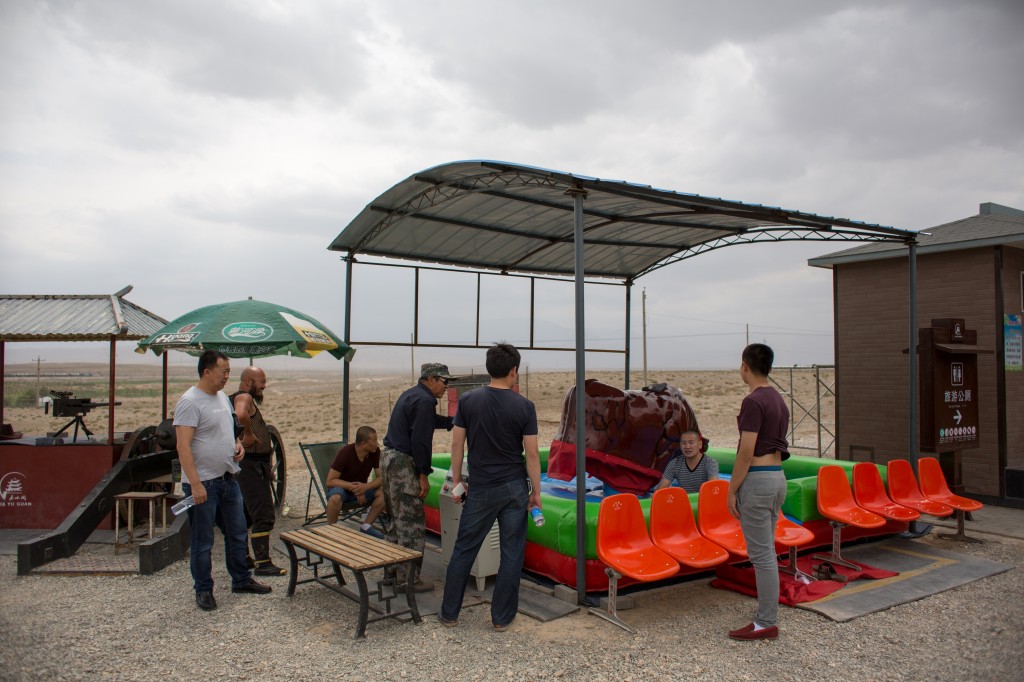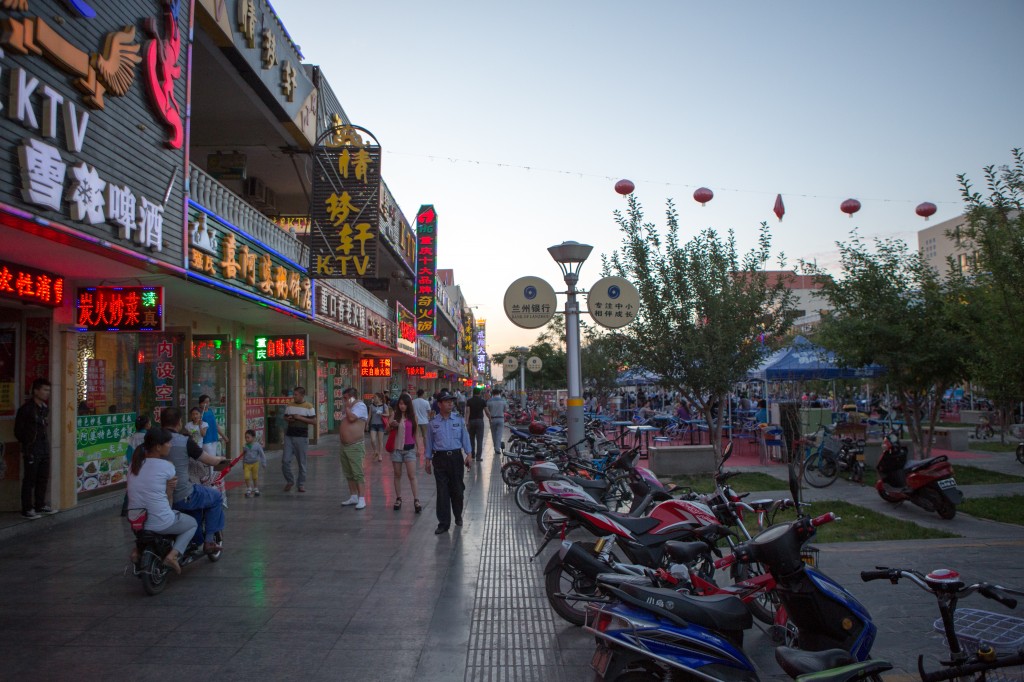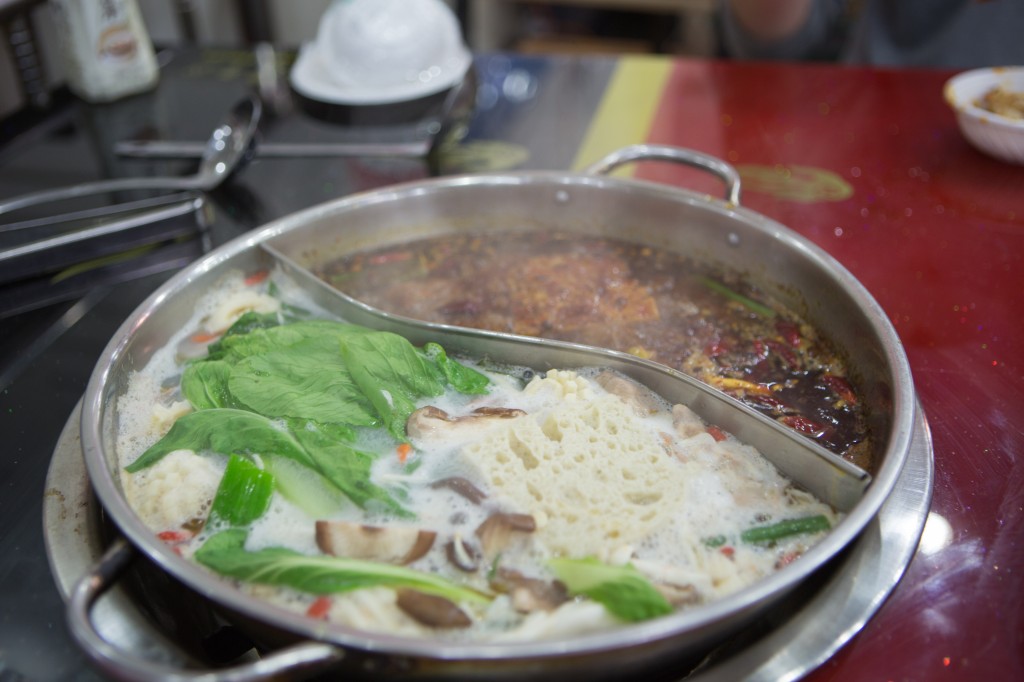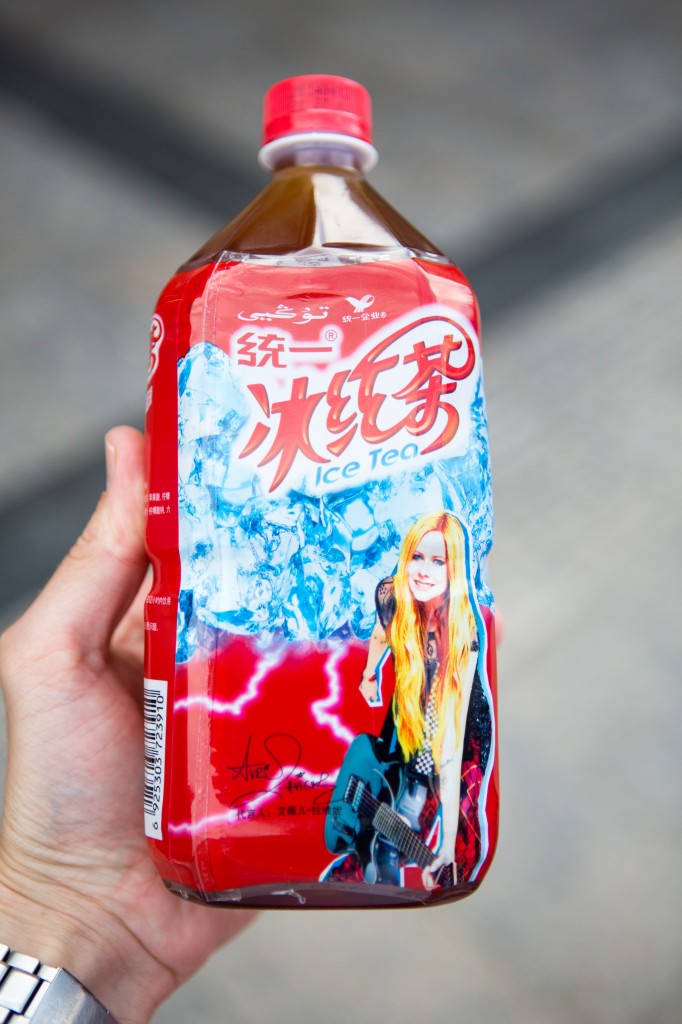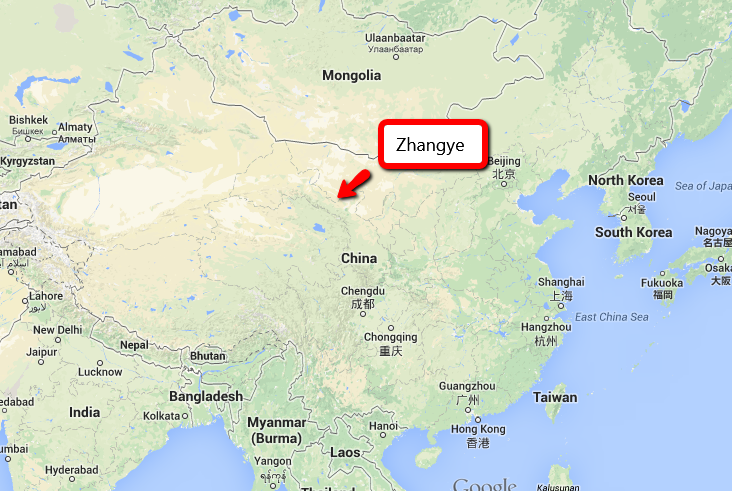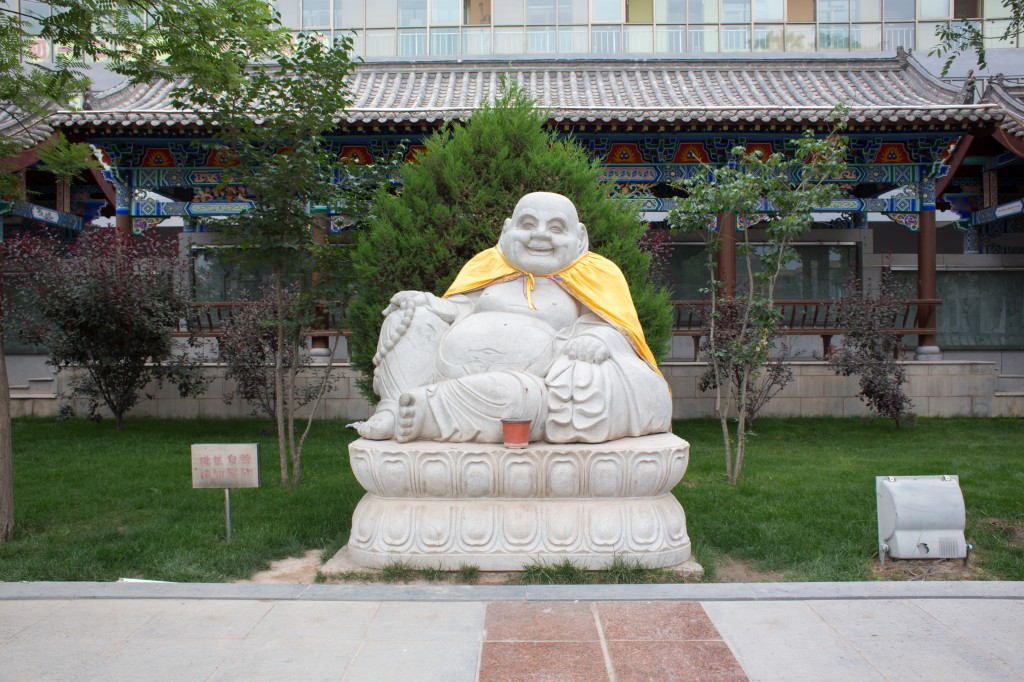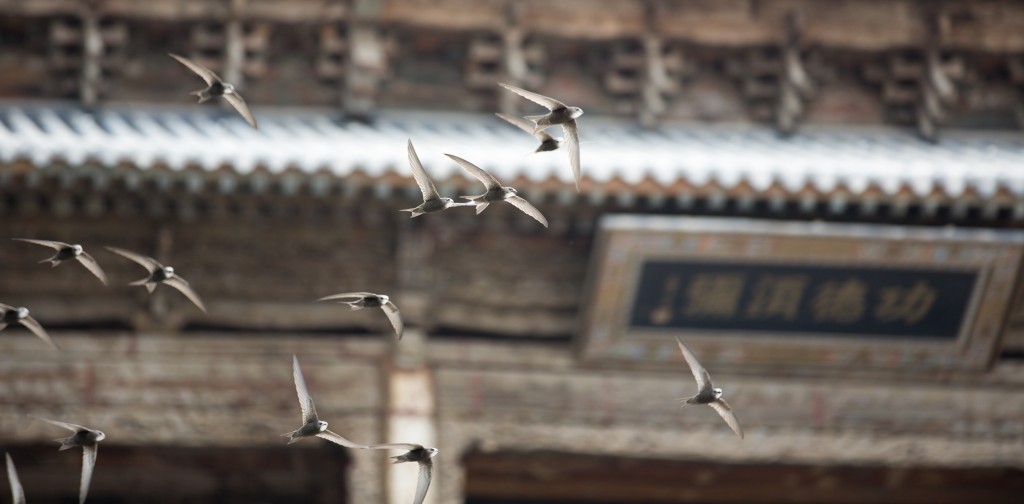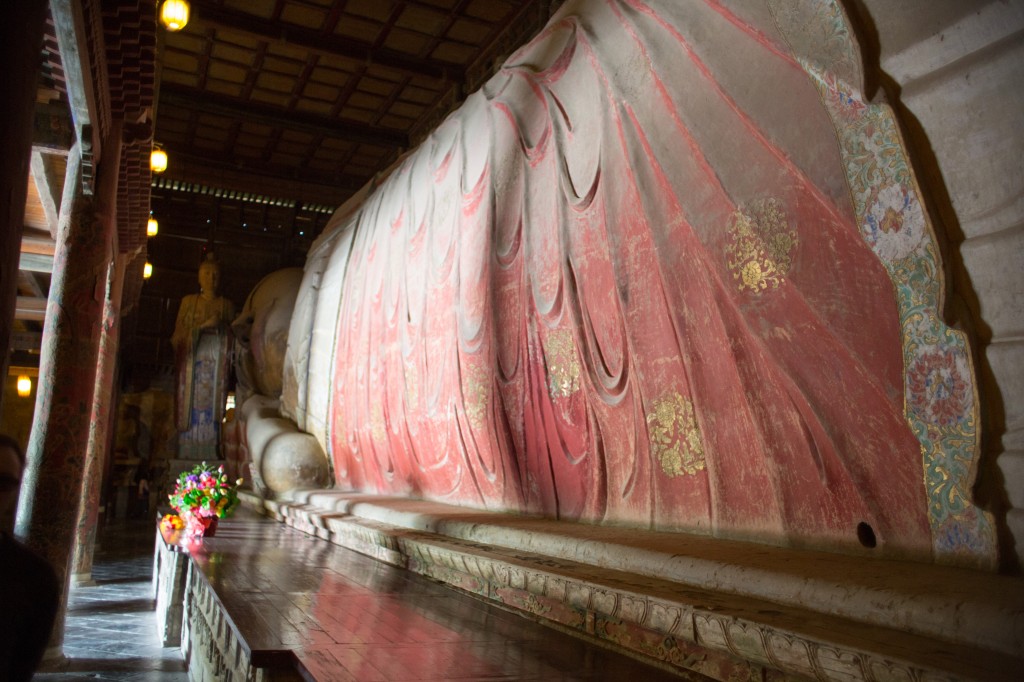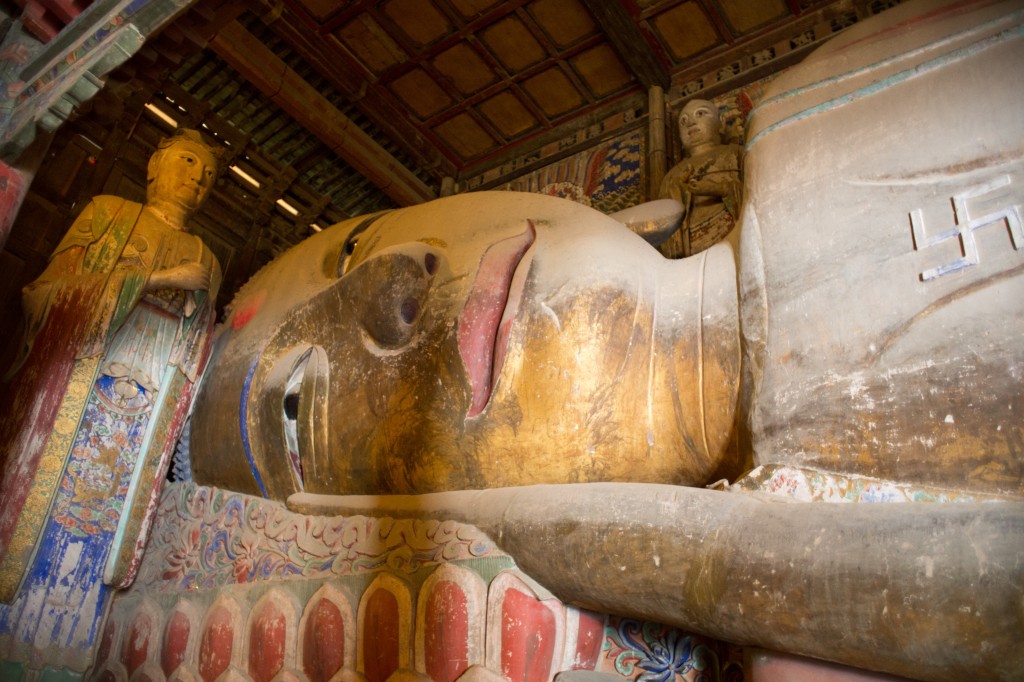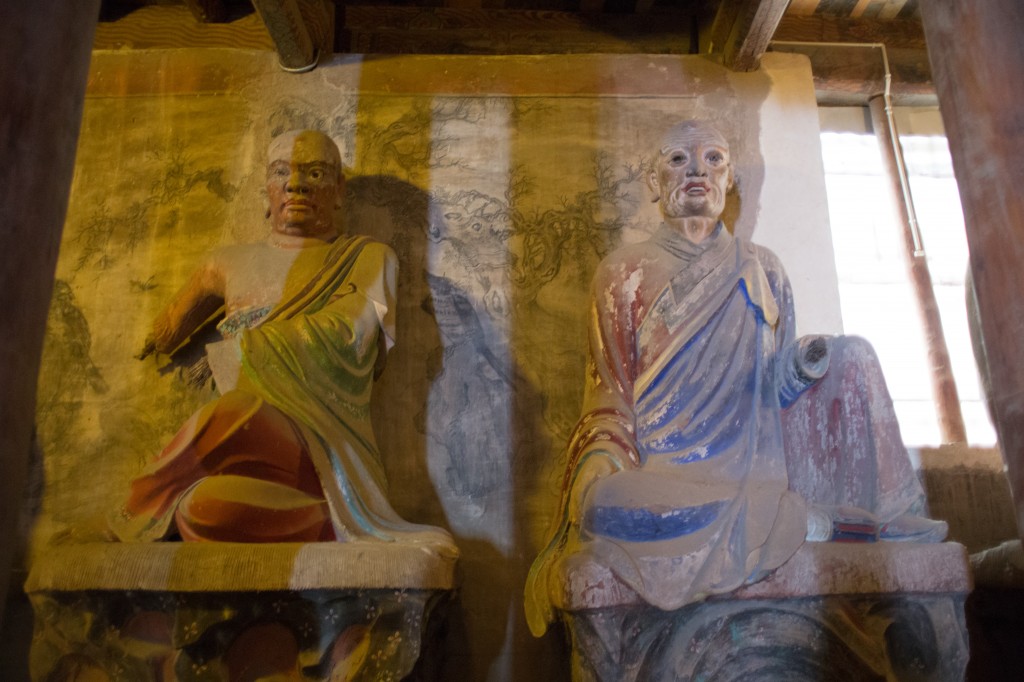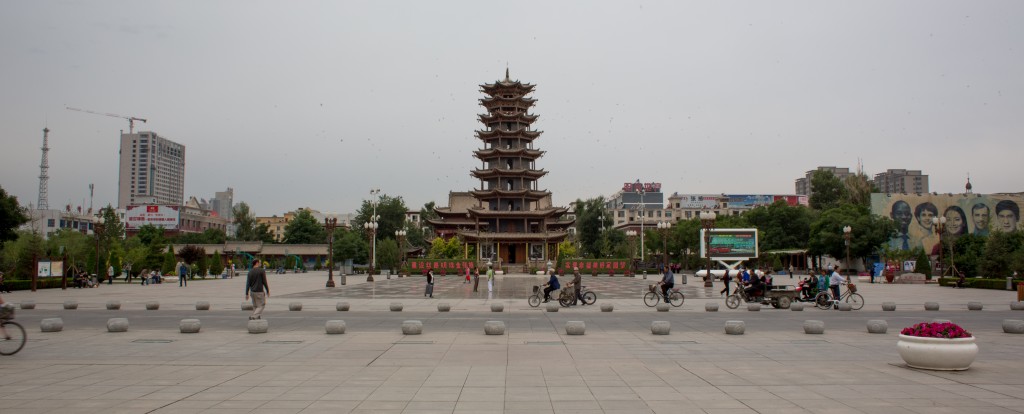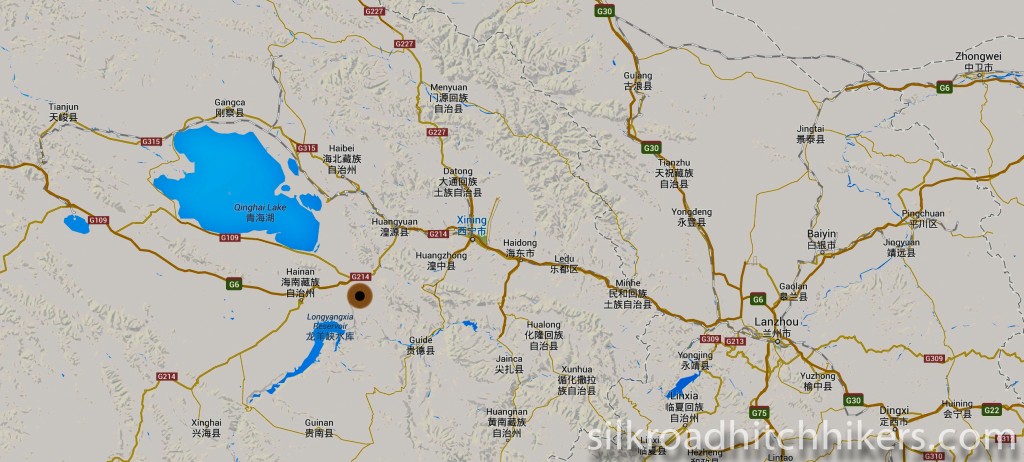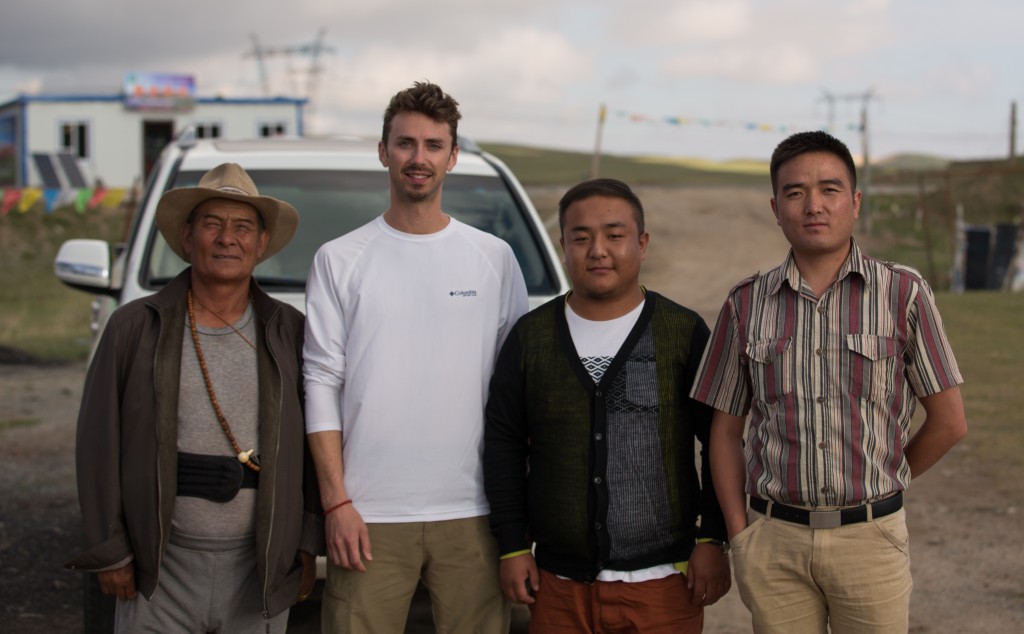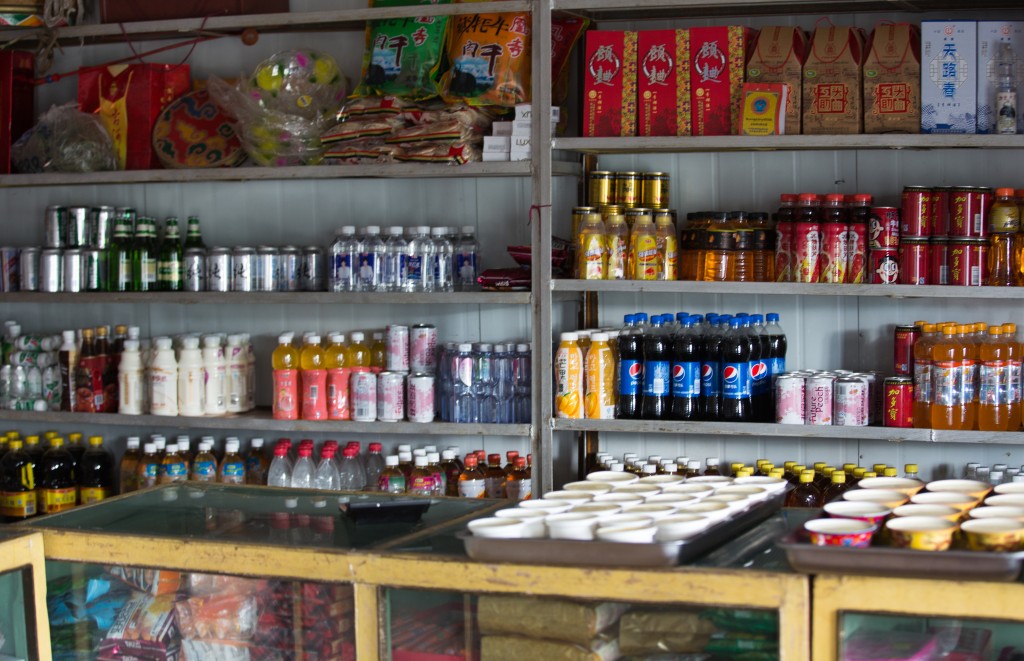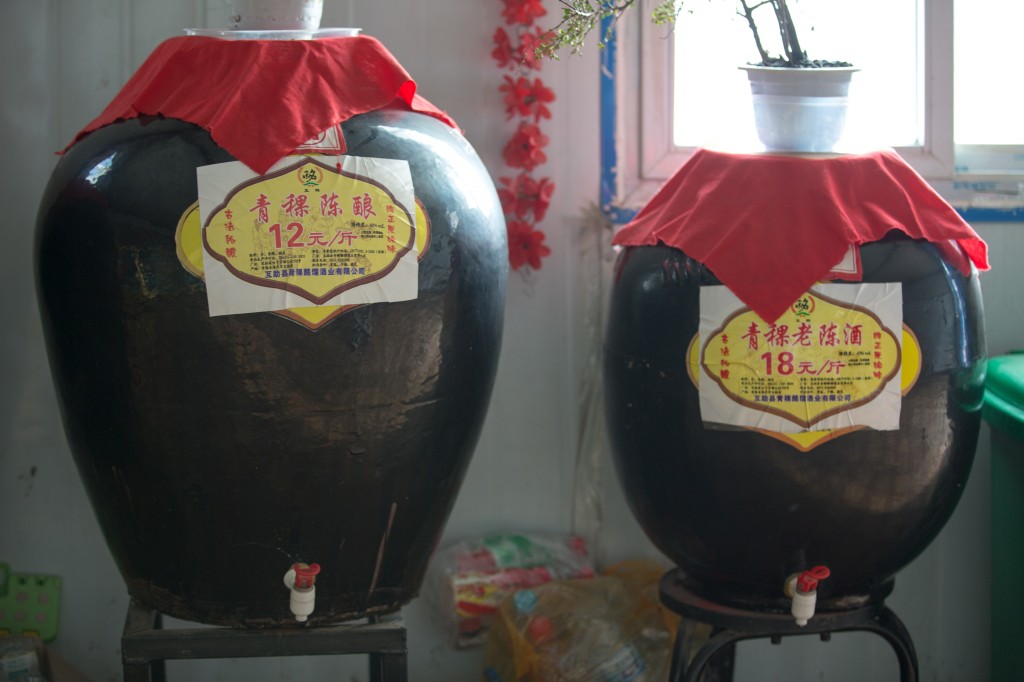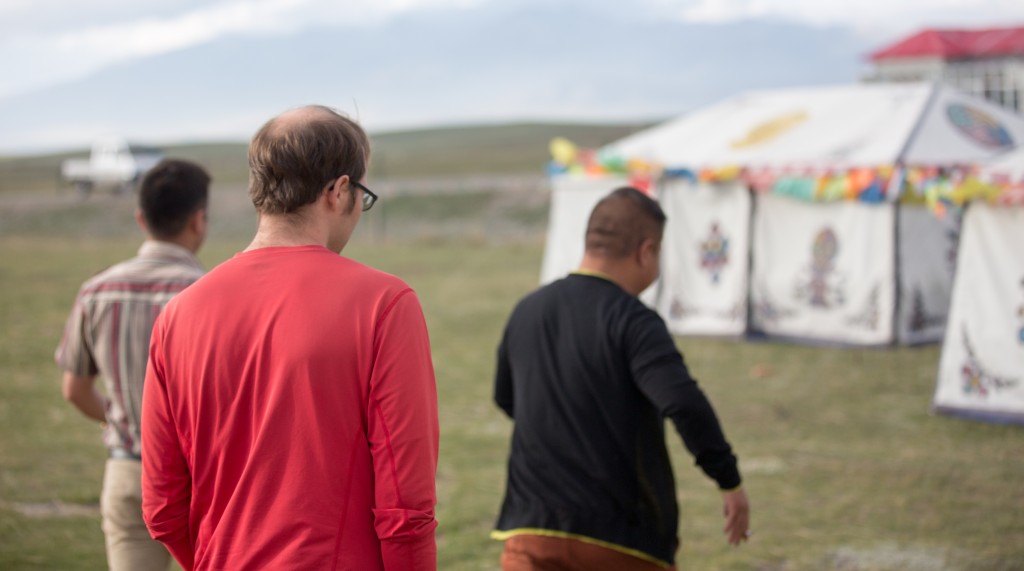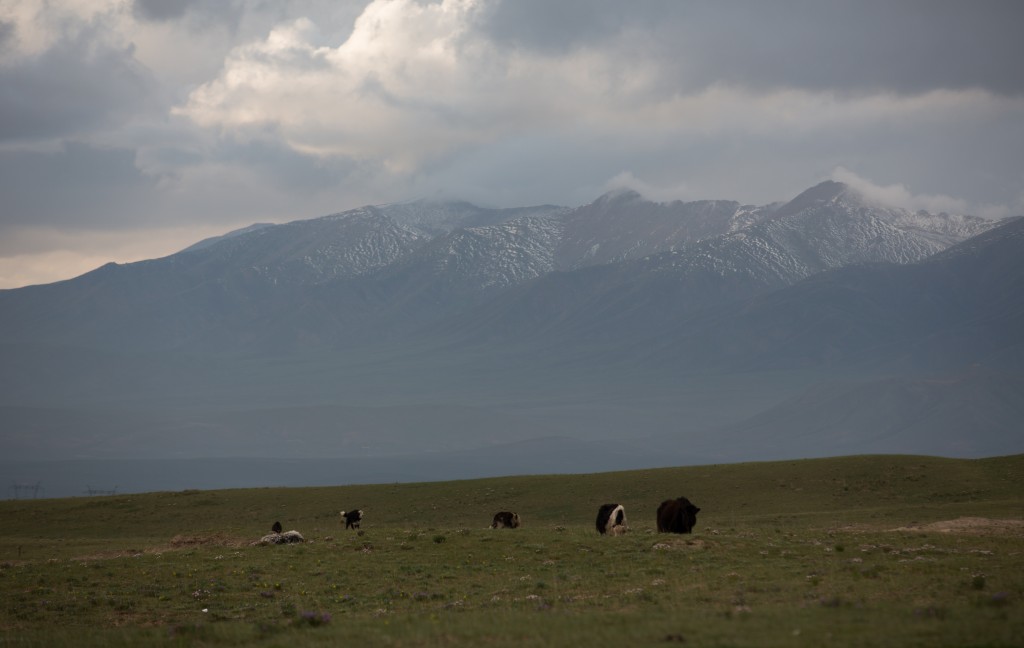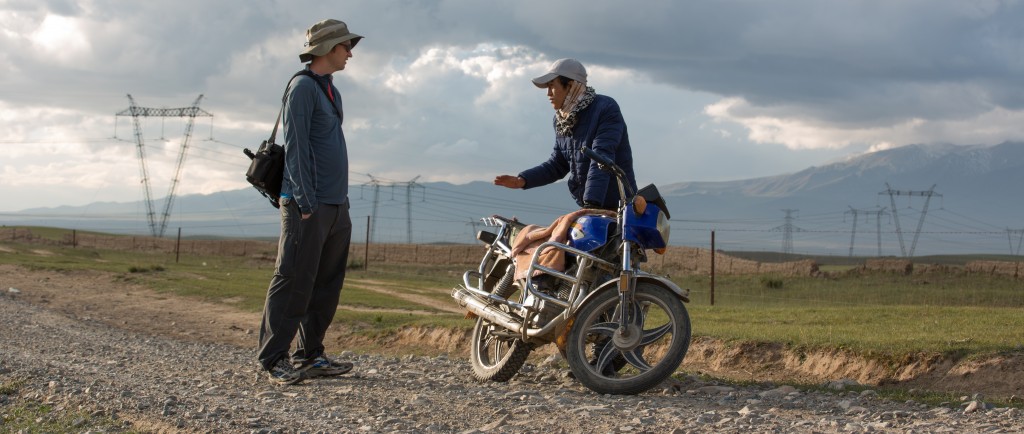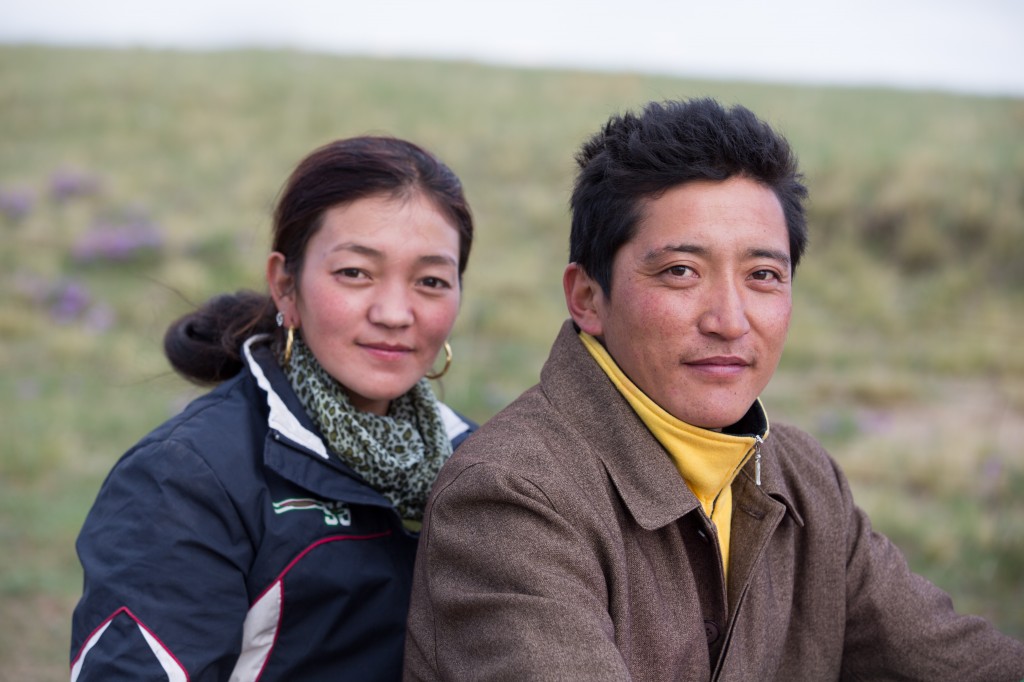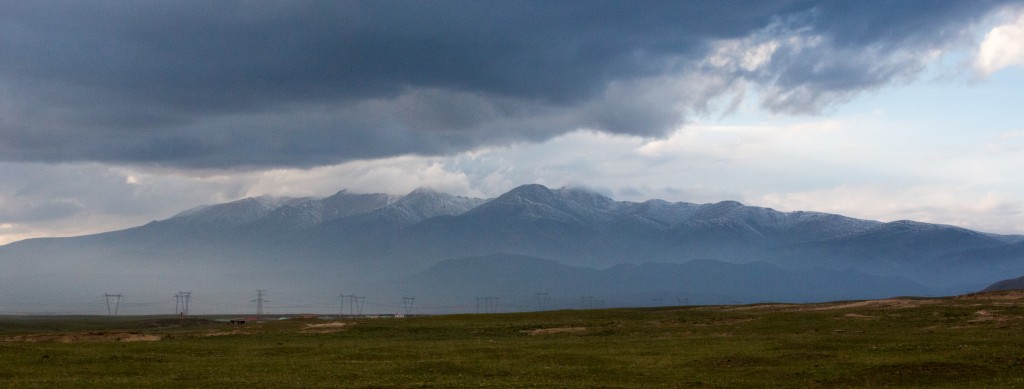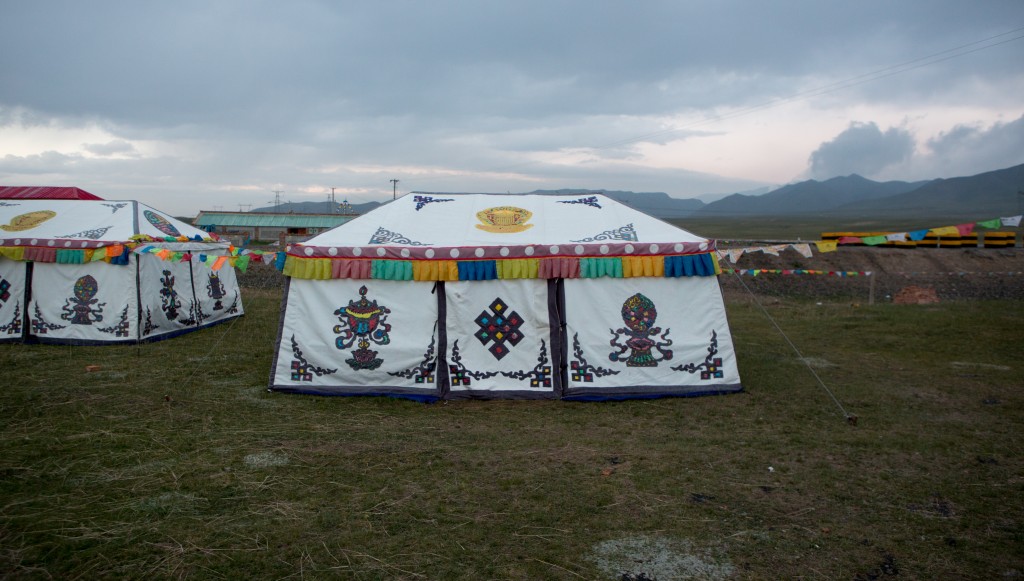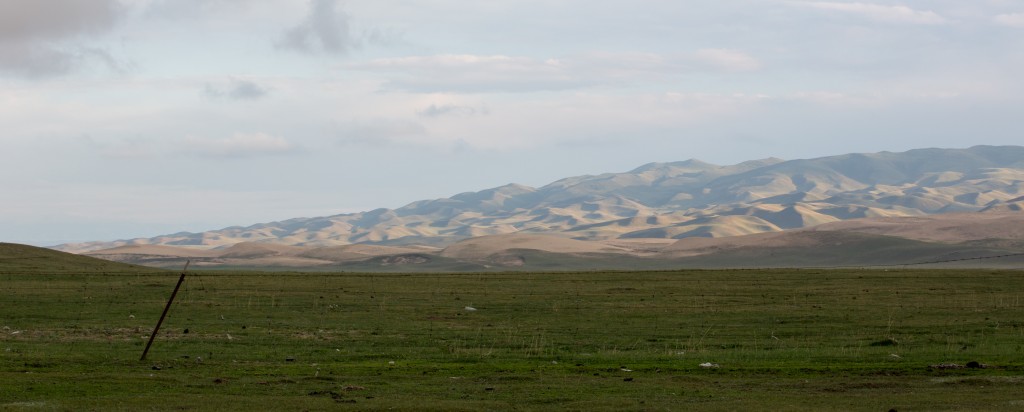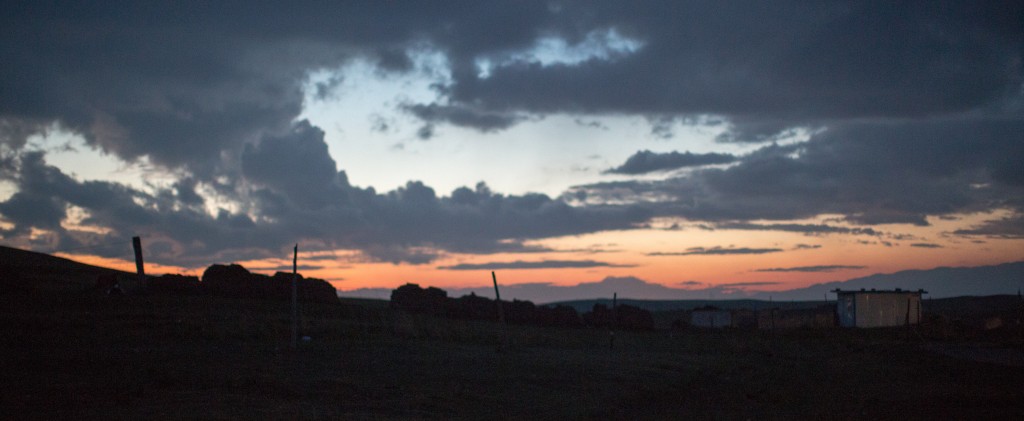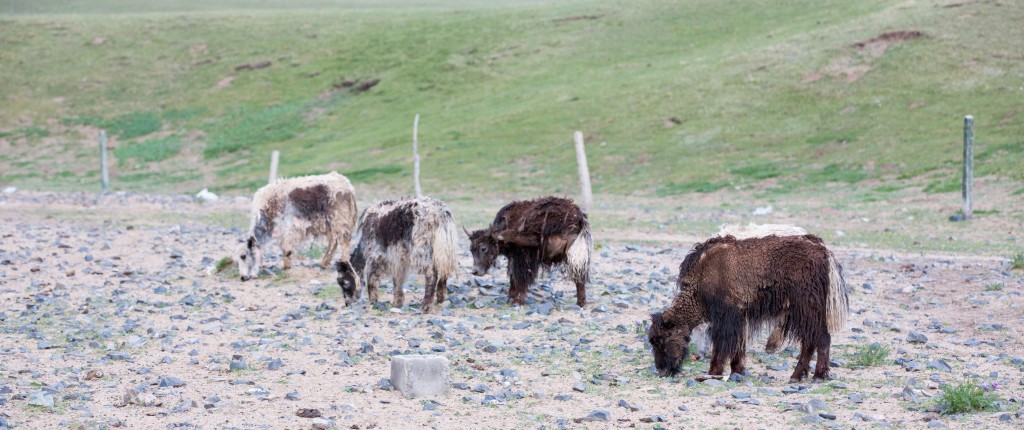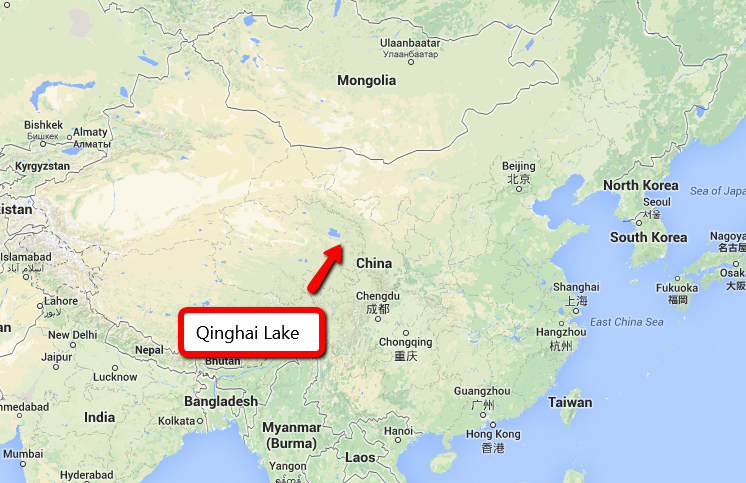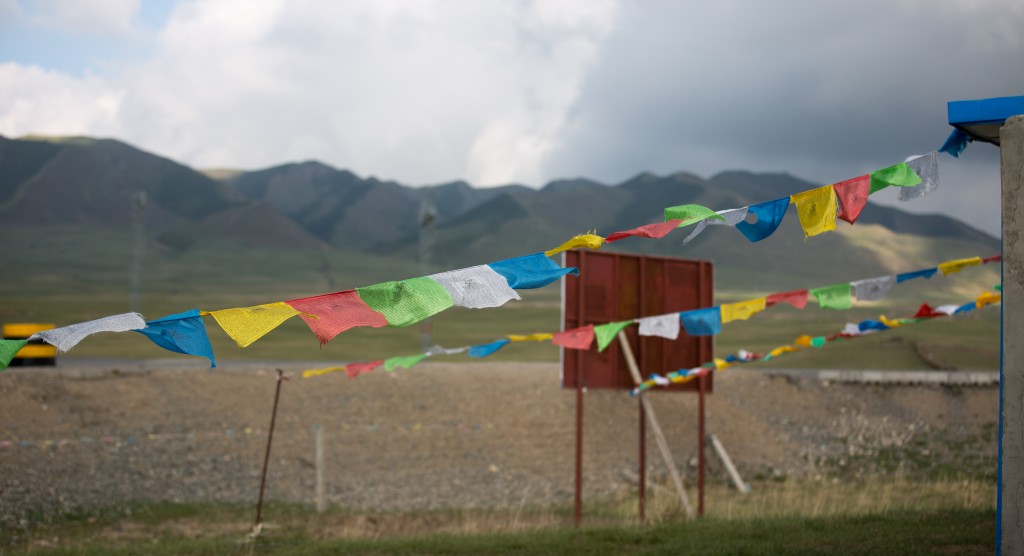Since we had arrived in this touristy Silk Road town, I had been trying to figure out how to get to the Qinlian Mountains, the white capped peaks beckoning us from a distance. The mountains were beautiful and looked wild. Only fifty miles away, no one had any idea of how to get there, not even if we wanted to hitchhike towards them. Most advised against it, saying it could be dangerous. Adding to this was the fact that, although we were in the desert, it seemed like rain was following us. With no answer on how to get anywhere near the Qinlian Mountains and all the other things going against us, I was reluctant to just take off in some direction, as we had done before.
Seeking answers, I walked up to the desk of a travel agent. “Do you know how to get to the Qinlian Mountains?” I asked.
Lily, the travel agent, was young and sort of cutish, in a stocky, Chinese way. Through her glasses, she squinted towards her computer and began trying to search for a way to get there, but after talking to me for two minutes, she completely revised what she was telling me.
“Actually, I don’t think you should really go there, unless you know someone. It’s sort of dangerous, and someone could rob you if you are just camped right there and there is no one else around. You know, you could go to my parents’ place.” Lily told me.
At first, I did not know whether to take her seriously. Why would I? We had just meet.
“No, it will be fine,” Lily assured me. “I am here and my brother is nearby here, so my parents are out there alone, and they have a room where you could stay. They would love to have a foreigner there. I am certain it would be a great honor for them.”
I went up to Galen to pitch the idea to him: a woman who I had just met and talked to for ten minutes decided that, instead of answering my question, she should invite me to her parent’s home, having not yet asked her parents, and not planning to accompany us. It seemed crazy, but I did not think we could pass up this opportunity.
Returning to her office, I told Lily we were up for it, and she called her parents to let them know, or to convince them-it was not clear.
At first, Lily’s mother resisted the idea. “Would they be able to communicate?” her mother asked.
“They both speak great Chinese.” Lily assured her, even though Galen spoke no Chinese, and Lily had not actually met Galen.
“What will they eat? We don’t have anything special, just the normal food. Noodles and stuff,” her mother worried.
“Mom, they are friends of mine, they will be fine with whatever.” Lily said.
Lily’s mother said she would talk to Lily’s father. I came back a few minutes later, and everything had been worked out. Lily gave me a sheet of paper telling me how to get to the city near where they lived, Yumen. Once we arrived, I was to call a Mr. Gao, and hitch a ride with him back to their village, called Drink Horse One Army.
Shoving the paper into my hand, Lily rushed off to a meeting. We never saw Lily again.
When I fell in love with China, living here from 2006-07, one of the things that fascinated me was how open people were. Sure, there were a lot of problems in China, but it was so much fun to be able to meet people and then suddenly have them invite you back to their homes, to really get to know people. One of the reasons many of the posts on this blog have seemed so down on China is because I have found that the Chinese seem to be increasingly closed, increasingly turning inward, motivated only by nationalism, as I described in this post.
Sometimes it is hard for me to see what I liked so much about China, until things like this happen, and then, I can remember.
